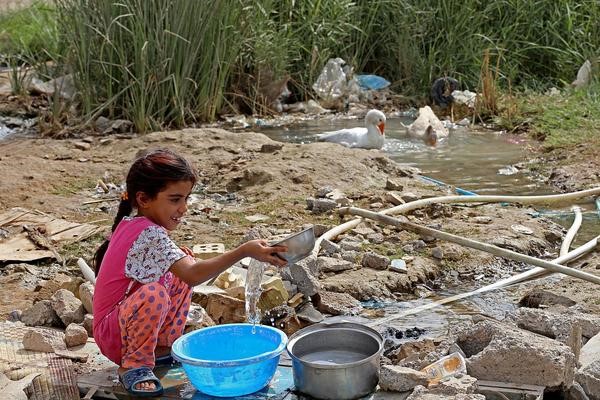About the Regional Cholera Platform in Middle East and North Africa

Cholera is a bacterial disease caused by ingestion of food or water contaminated by Vibrio Cholerae. It is an extremely virulent disease that, if untreated, can kill healthy adults within hours through extreme dehydration of the body caused by violent episodes of watery diarrhea and vomiting. Cholera is an equity issue which disproportionately affects the poorest and most vulnerable people worldwide and within each affected country. In 2016, 54% of all reported cholera cases were from Africa (WHO, 2017).
Additional information click here
In MENA-EM region, at least 14 out of the 23 countries have reported cholera cases in the last decade. The overall global and regional incidence of cholera has been rising over the last few years and the region has faced large outbreaks in recent years. Major underlying causes of these outbreaks are poor environmental infrastructure, lack of health care services, lack of safe water and sanitation, and increased population movement.
From December 2017 to August 2019, 8 613 suspected cholera cases including 46 related deaths were reported in Somalia (Somalia- WHO bulletin, August 2019). From October 2016 to August 2019, 2,002,151suspected cholera cases were reported in Yemen including 3,690 related deaths (Yemen WHO bulletin, August 2019). Nodaway, Yemen is still facing more than 15,000 suspected cholera cases per week. In the last years, other countries have experienced cholera epidemics, such as Sudan with 36,811 acute watery diarrhea cases reported from August 2016 to February 2018 and Iraq with 2,810 confirmed cholera cases reported in refugee’s camps between October and December 2015. Other countries in the region are also at-risk of cholera due to large population movements from cholera endemic /epidemic settings (Djibouti, Libya) but also due to the deterioration of health, water and sanitation infrastructures (Yemen, Somalia, Iraq, Afghanistan). Indeed, the political instability and civil conflict affecting many countries in the region have resulted in major displacement of civilians and breakdown of basic social services.
What is currently done
In MENA region, national governments and operational partners undertake cholera initiatives on an annual basis. Consequently, implementing capacity and effective strategies for cholera preparedness, prevention and response remain limited. Cross-border transmission is poorly addressed, and governments are sometimes reluctant to report cholera cases, that leads to overall underestimation of the extent of the disease and impedes a timely and targeted response.
The key challenges that we identified are the lack of adequate national plans for cholera prevention and response, the limited access to remote communities, poor health and water and sanitation facilities/infrastructure, the complex social and anthropological norms, the insufficient engagement of communities and societies in cholera prevention, preparedness and response actions but also the inadequate or non-existent cross-border collaboration mechanisms and the limited local capacity in some technical areas.
Learn more about cholera in the region through the following sections:
- Regional Strategy
An Integrated and targeted approach in cholera preparedness, emergency response and long term intervention.
